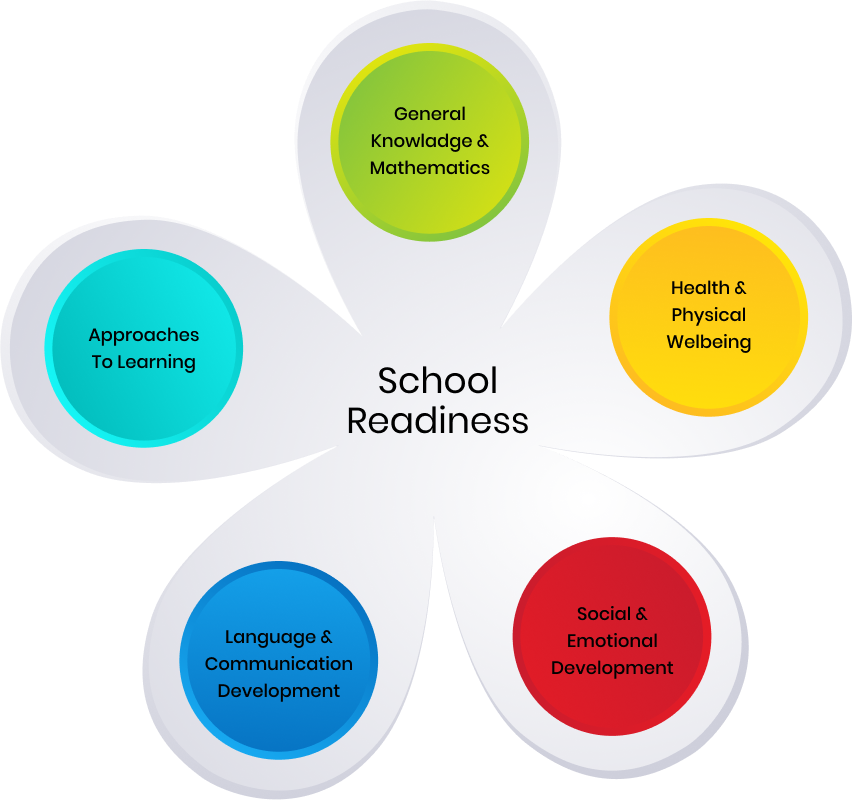“Children learn as they play. More importantly, in play, children learn how to learn” Play is the defining feature of human development: the impulse is hardwired into us and can’t be suppressed. As we know the children are naturally motivated to play, an activity-based program builds on this motivation, using it as a context for learning. In this framework, children can explore, experiment, discover, and solve problems in imaginative and playful ways. It is in play that basic social skills—like sharing and taking turns—are learned and practiced. Children also bring their own language, customs, and culture into play. As an added benefit, they learn about their peers’ in the process. That’s why a play-based approach involves both child-initiated and teacher-supported learning.
Human development is complex and all aspects are interconnected. Early human development has been divided into different developmental domains which help in ensuring holistic development of the child. All domains or areas of development are interconnected. For example, learning to talk is usually placed in the language domain, but involves physical, social, emotional and cognitive development. We in Techno Kids grouped the domains of development into the following:

“School readiness means each child enters school ready to engage in and benefit from early learning experiences that best promote the child's success and ability to be “
Research indicates that the first five years of a child’s live is a time when the brain is building the pathways that provide the foundation for all future learning. Building these skills can help a child participate and succeed in school.
The objectives are:
- Promotes holistic development of a child
- It prepares child for formal schooling

Key skills developed:
| Talking and Listening | Emergent Reading | Emergent Writing |
|---|---|---|
| Listening with comprehension | Bonding with Books | Early literacy skills |
| Creative Self Expression and Conversation | Print Awareness and Meaning Making | Writing for self-expression |
| Language and Creative thinking | Pretend Reading | Make use of her/his knowledge of letter and sounds, invents spellings to write. |
| Vocabulary Development | Phonological Awareness | Make efforts to write in conventional ways |
| Conversation and talking skills | Sound Symbol Association | Response to reading with drawings/words and meaningful sentences |
| Meaningful uses of language | Prediction and use of previous experiences with knowledge | |
| Independent reading for pleasure and various purposes. |
| Sensory Development | Cognitive skills | Number operations |
|---|---|---|
| Sight, sound, touch, smell taste | Observation, Identification, Memory, Matching, Classification, Patterns, Sequential Thinking, Creative Thinking, Critical Thinking, Problem Solving, Reasoning, Curiosity, Experimentation, Exploration | Addition |
| Subtraction |
| Concept Formation | Number sense | Concepts related to environment |
|---|---|---|
| Colours, shapes, distance, measurement, size, length, weight, heights, time | Count and tell how many | Natural-animals, fruits, vegetables, food |
| One-to-one correspondence | Numeral recognition | Physical — water, air, season, sun, moon, day, and night |
| Sense of order (can count ahead of a number up to 10) | Social — myself, family, transport, festival, community helpers, etc. |